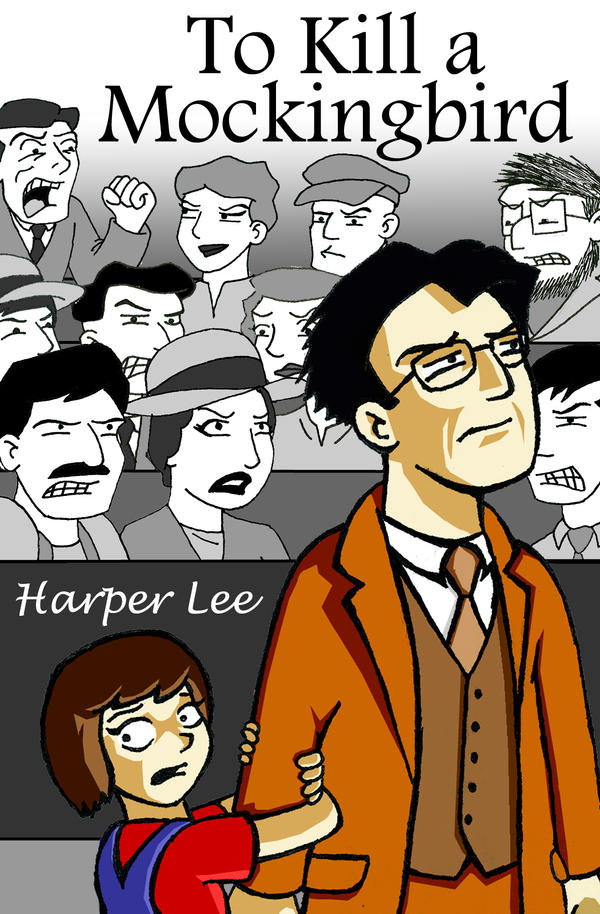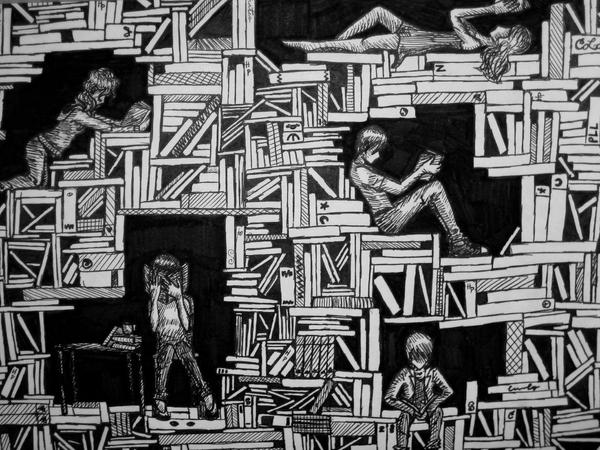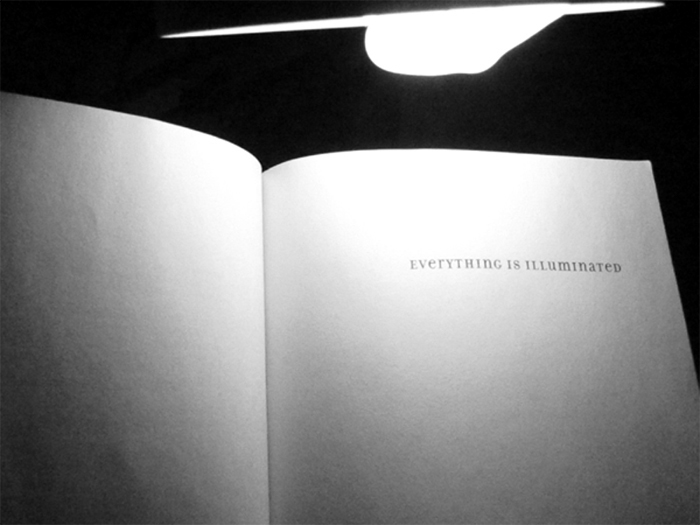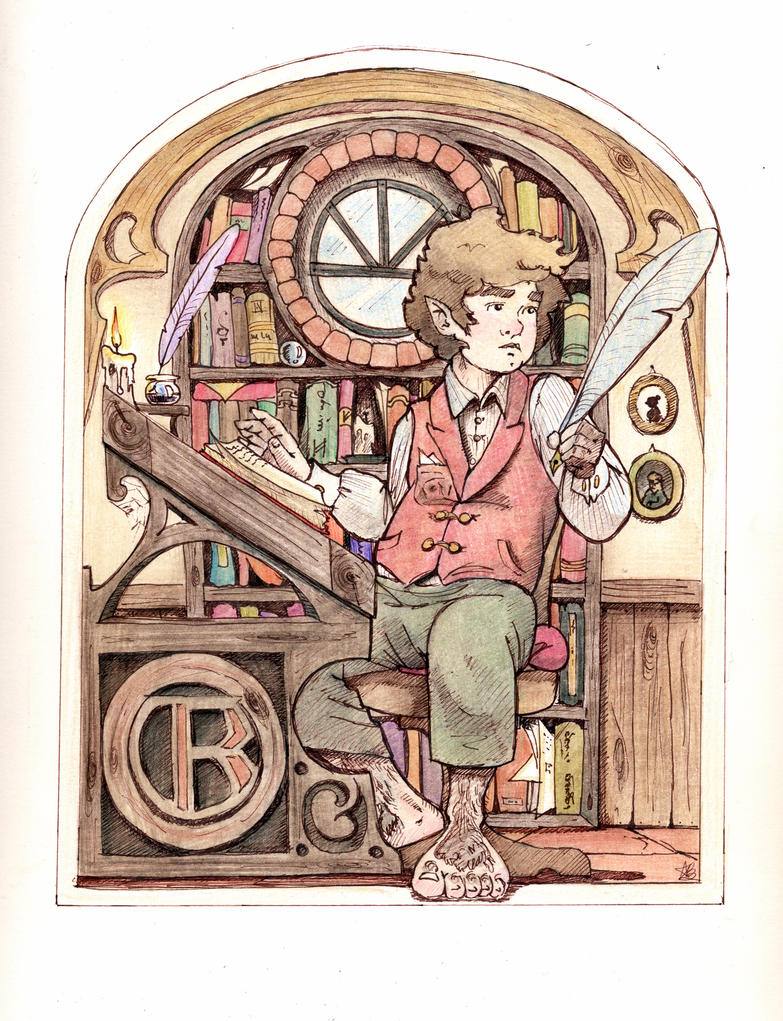In my high school experience, writing was a straightforward and nearly always boring task. Rarely were we asked to write about topics and issues that were of interest to us as individuals. I hated, and still rather dislike, writing analytical pieces for my English classes. I did (and do!) love to write. In high school, I spent a large amount of my time writing and editing fan fiction. Every November for the last five years I've participated in
NaNoWriMo. These two things, along with frequent blogging, are the enjoyable writing endeavors I participate in. After reading these last few chapters of
Teaching Adolescent Writers, I've found many different writing activities and starters that I think students would genuinely
enjoy.
Chapter Five:
Gallagher opens this chapter with a quote that I rather like, "writing anchors a literate life". Shortly after this, he outlines how allowing students choice in writing is beneficial. One, "Choice fosters a feeling of ownership in the writer" (91). If the student isn't personally vested or at least interested in what they are writing about, the writing they produce isn't going to be their best work. Letting students chose what they write about allows them to own what they write and enjoy it. Two, "Choice drives better revision" (91). We can require our students to revise their writing over and over, but they're not going to put solid effort into meaningful revisions unless it's something they are interested in.

"Pass the Portrait"
I particularly enjoyed this activity Gallagher described. Each student gets an unusual picture when they come into class and begins writing based on what they interpret from the picture. After a few minutes, they pass their picture and what they have written to the person next to them and, after viewing the new picture and reading over what has already been written, the student starts up writing from where the last bit ended. The process is repeated a few times and then students group up and share what they have written. They pick the best one and then, as a class, the groups share their picks. I think this is a wonderful idea; it combines images, creative writing, and collaboration. I think it would be interesting to do a version of this where the class is first split into groups and each group is given the same set of pictures. They preform the same activity, but at the end it would be interesting to compare how identical pictures potentially produced different results in writing. I think the students would find it interesting to see how their interpretations differed from their fellow classmates' ideas.
"I am an expert"
I also liked this idea from Gallagher. It would be a good method of teaching idea generation and allowing students to, again, chose what they're writing about. Gallagher started this chapter off by discussing how difficult it is to balance student choice and standards. I think that this activity could easily be manipulated to include both choice and standards. If the students were to select an idea from what they are experts in, they could turn their idea into a persuasive paper. For example, if a student were an expert in skiing they could write a paper/essay convincing readers that skiing is better than snowboarding. This is an idea that I will likely employ in my own classroom.
Chapter Six:
What I took most out of this chapter is how beneficial it is for students to be writing
for someone other than their teachers. I think it is a wonderful motivator for students to know that they are both writing for a purpose and that their writing
means something. Gallagher had his students write to their local politicians when a few local issues came up that impacted the students. This was a wonderful way to teach students the purpose in writing and how your audience is important. I would like to use this concept in my classroom.
"Targeted Bulletin Boards"
There were many of Gallagher's ideas in this chapter that I just couldn't see myself using. Many of them seemed to highlight so few students, leaving many in the dust. The targeted bulletin board is one idea that I could definitely see myself employing. I would display different features of writing (corresponding with whatever I was teaching/emphasizing at the time) so that multiple students could be featured on a rotating basis. Students would know that there would be more of an audience than me reading their papers and thus, take more time and effort constructing and editing their writing.
"Promote Writing Contests"
After helping with Sigma Tau Delta's writing contest last semester, I've seen how excited students can get over competing with their fellow classmates. I think this is definitely something I will encourage/organize in my school. The students have the opportunity to enter any writing they want [choiceeeee] and are elated when they win. Something Sigma Tau Delta also does is get a book bound with all of the winning pieces for each of the students. This gives them something to keep and remember. We also gave a copy to their English Teacher for the classroom, this ties back to Gallagher's idea on having collections of student work for current students to peruse.
Blogging!
I started blogging about seven years ago. Never did I ever ever think that it was something I would be *allowed* to use in my classroom. Gallagher mentions it as a growing trend among students in his classroom. He glosses over one of the biggest potentials I think blogging offers. Anonymity. Students could write freely and openly on anonymous blogs and expand their writing skills along the way. All the blogs could be connected so that the class could read each other's blogs and comment anonymously. It is a win-win situation! This is something I will definitely use in my classroom.
I shall end this exceedingly long post with some relevant and [imho] wonderful quotes:
“It seemed so obvious now that it was too late: a story was a form of telepathy. By means of inking symbols onto a page, she was able to send thoughts and feelings from her mind to her reader’s. It was a magical process, so commonplace that no one stopped to wonder at it. Reading a sentence and understanding it were the same thing; as with the crooking of a finger, nothing lay between them. There was no gap dug during which the symbols were unraveled. You saw the word ‘castle’, and it was there, seen from some distance, with woods in high summer spread before it, the air bluish and soft with smoke rising from the blacksmith’s forge, and a cobbled road twisting away in the green shade…”
—
Ian McEwan,
Atonement, Page 35
“What authors mean doesn’t really matter, I don’t think. What’s important is that critical reading can be a way of thinking quite deeply about questions that are difficult and complicated and not in some like boring and abstract way like “Oh, in Moby Dick white is a symbol for nature’s ambivalence to man.” But instead in like a concrete and totally interesting way like, “Nature’s complete indifference to you, as expressed by the color white in Moby Dick, is something that you had better get your head around or else you’re going to end up like Captain Ahab.” So it’s not so much about uncovering secret mysteries for the sake of uncovering secret mysteries, it’s about using story as a way into thinking about our actual lives and how we’re actually living them.”
—
John Green, Question Tuesday! Paula Deen Riding Me (and critical reading) 6/16/2011
 I had my last observation this past Thursday! Finally, Dr. Shannon came to observe a period that is fairly well-behaved and rather academic. I'm not going to lie here, they're pretty much my favorite class. The period started off pretty well...so far as I saw it, the students didn't really seem to mind Dr. Shannon's presence in the room, and they did not act any differently than they would have if she had not been there. I got the students settled down a bit and instructed them to pull out their TKAM books and reader response journals from the night before. I instructed them to split up into pairs and compare/discuss what they had written in their RRJs. After a few minutes, I instructed them to select one passage and develop one question they had about the chapters they had read the night before. Once they had done this, I put polleverywhere.com on the screen and directed the pairs to submit one question and one passage. They were also to attach their name to the text. We used their text submissions as a structure for our class discussion that day.
I had my last observation this past Thursday! Finally, Dr. Shannon came to observe a period that is fairly well-behaved and rather academic. I'm not going to lie here, they're pretty much my favorite class. The period started off pretty well...so far as I saw it, the students didn't really seem to mind Dr. Shannon's presence in the room, and they did not act any differently than they would have if she had not been there. I got the students settled down a bit and instructed them to pull out their TKAM books and reader response journals from the night before. I instructed them to split up into pairs and compare/discuss what they had written in their RRJs. After a few minutes, I instructed them to select one passage and develop one question they had about the chapters they had read the night before. Once they had done this, I put polleverywhere.com on the screen and directed the pairs to submit one question and one passage. They were also to attach their name to the text. We used their text submissions as a structure for our class discussion that day.














